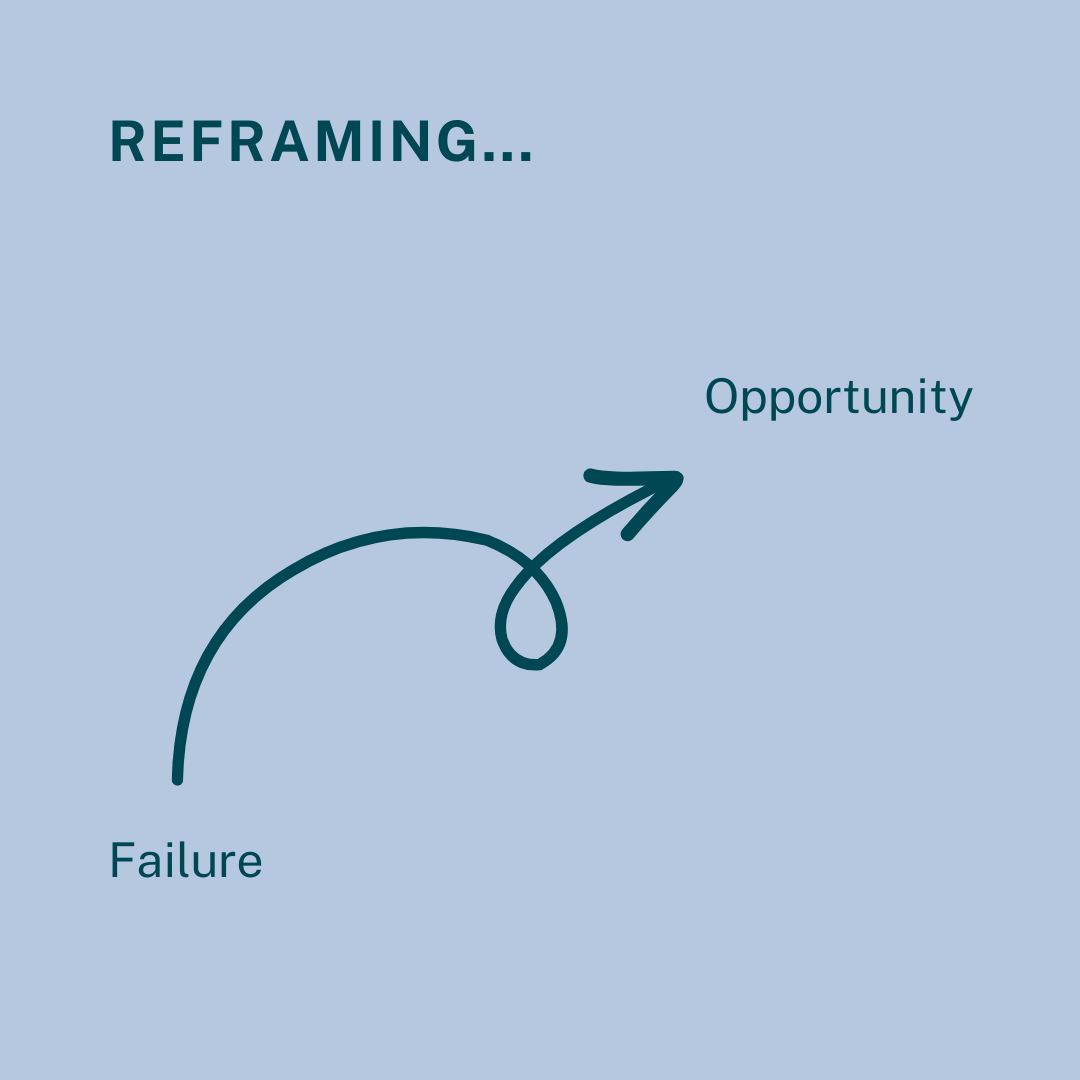Failure. Even the word can feel heavy, can’t it? Yet, for PhD and MBA students, it’s an almost inevitable part of the journey. Deadlines missed, experiments gone awry, rejections from journals or pitches that didn’t land—failure often feels like an unwelcome companion. But what if failure isn’t the villain we make it out to be? What if, instead, it’s a misunderstood stepping stone to success?
Reframing failure as an opportunity isn’t just a positive spin; it’s a mindset shift that can transform your academic or professional experience. Here’s how you can embrace it, why the words you use matter, and practical tips to turn setbacks into stepping stones.

Why Words Matter
The way we talk about failure—to others and, most importantly, to ourselves—shapes how we perceive it. Telling yourself, “I’m a failure” after a rejected dissertation chapter is worlds apart from saying, “This is a chance to refine my ideas.”
Negative self-talk can create a mental block, making you feel incapable and demotivated. On the other hand, viewing setbacks as opportunities to learn keeps you in control and solution-focused.
For instance, instead of saying:
- “I failed that proposal defense,” try:
- “I received valuable feedback to strengthen my proposal.”
Small linguistic shifts can have a profound impact on how you view challenges and move forward.
Why Failure Feels So Personal in a PhD or MBA
In academic and professional environments, failure can feel magnified. The stakes are high, and imposter syndrome can creep in at the slightest hiccup. You’re surrounded by driven peers, and every misstep can seem like a glaring confirmation that you’re not cut out for this.
But here’s the truth: failure is part of the process. No one gets a PhD or MBA without stumbling along the way. Experiments fail, markets shift, and strategies fall flat—that’s where the growth happens.
Steps to Reframing Failure as Opportunity
1. Separate Yourself from the Event
Failure is something that happens; it’s not who you are. Instead of saying, “I’m terrible at data analysis,” reframe it as, “This analysis didn’t go as planned, but I can refine my approach.”
2. Shift from Blame to Curiosity
Instead of asking, “Why did I mess up?” ask, “What can I learn from this?” When an experiment or strategy fails, dig into what went wrong and see it as a chance to understand and grow.
3. Celebrate the Effort, Not Just the Outcome
It’s easy to focus on the end result, but don’t overlook the effort you put in. A failed presentation means you were brave enough to present in the first place. That’s worth celebrating.
4. Find the Silver Lining
Every failure has a lesson or insight. Maybe a rejected journal article taught you to sharpen your argument. Perhaps a failed pitch helped you identify gaps in your market research.
5. Remember the Bigger Picture
Your dissertation or MBA project isn’t defined by a single moment. Keep your long-term goals in mind. A stumble today doesn’t negate the progress you’ve already made.
Tips for Reframing Failure
What to Do:
- Write It Down: Journaling about setbacks can help you process emotions and identify lessons.
- Talk It Out: Share your experience with a mentor, supervisor, or peer. They’ve likely been there too.
- Set New Goals: Use failure as a chance to reassess and set fresh, actionable goals.
- Practice Self-Compassion: Treat yourself with the kindness you’d offer a friend in the same situation.
What to Avoid:
- Catastrophizing: A single failure isn’t the end of the world. Don’t let it snowball into overwhelming self-doubt.
- Comparisons: Avoid comparing yourself to others. Everyone’s journey is unique, and social media rarely shows the setbacks behind the successes.
- Perfectionism: Don’t let the fear of failure stop you from trying. Remember, progress beats perfection every time.
Real-World Examples
- PhD Context: A doctoral student whose experiment fails repeatedly might discover an overlooked variable, leading to a breakthrough they wouldn’t have reached otherwise.
- MBA Context: A failed business pitch could provide invaluable insights into market needs, helping refine the next proposal into a winning one.
Final Thoughts
Reframing failure as opportunity isn’t about denying the frustration or disappointment that comes with setbacks. It’s about shifting your perspective to see them as part of the learning process.
Remember, your words matter. Speak to yourself with kindness, stay curious, and embrace the lessons failure has to offer. As a PhD or MBA student, you’re not just working toward a degree—you’re building resilience, adaptability, and the ability to turn challenges into triumphs.
So, the next time you stumble, remind yourself: it’s not failure—it’s growth in disguise.